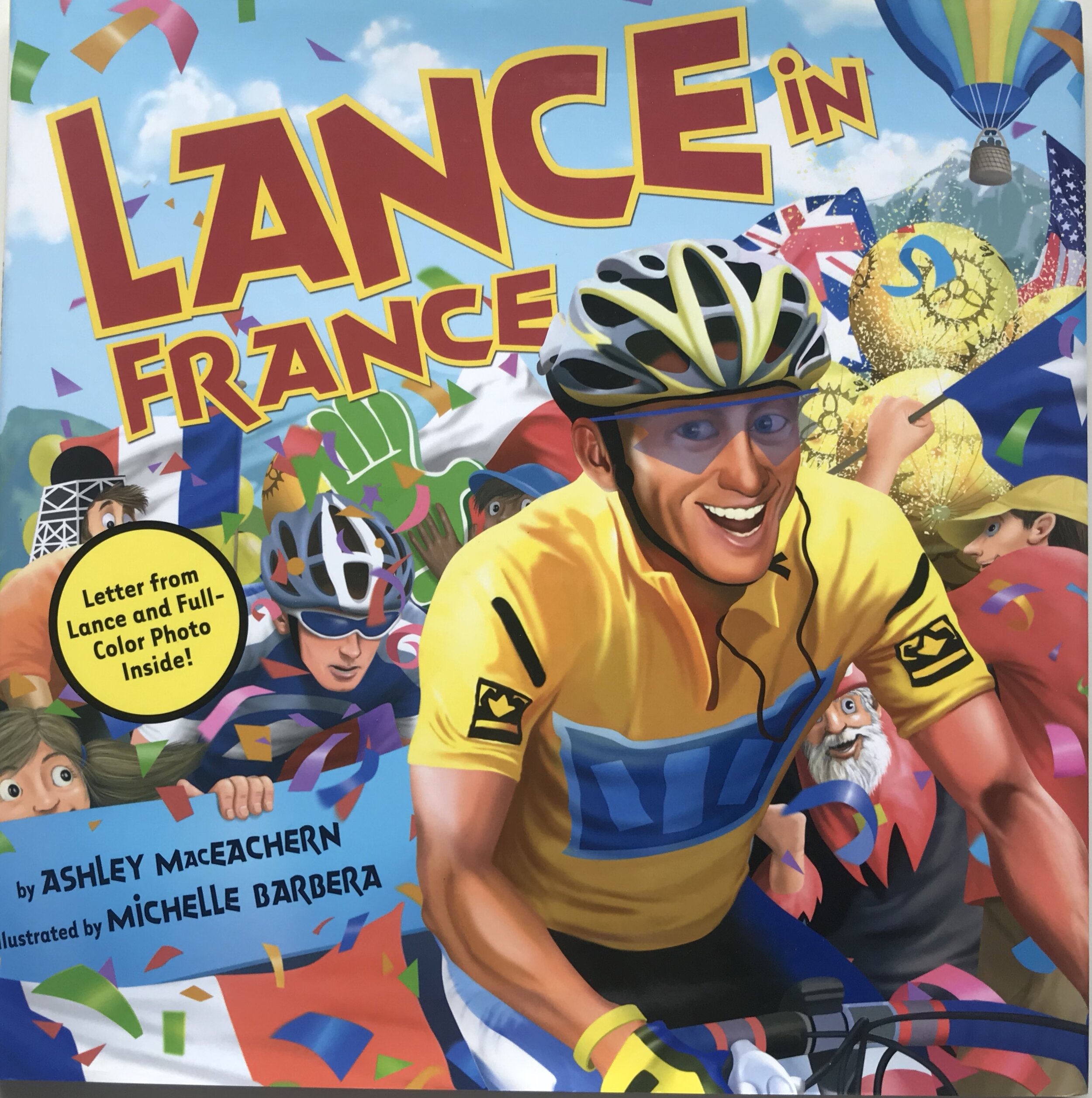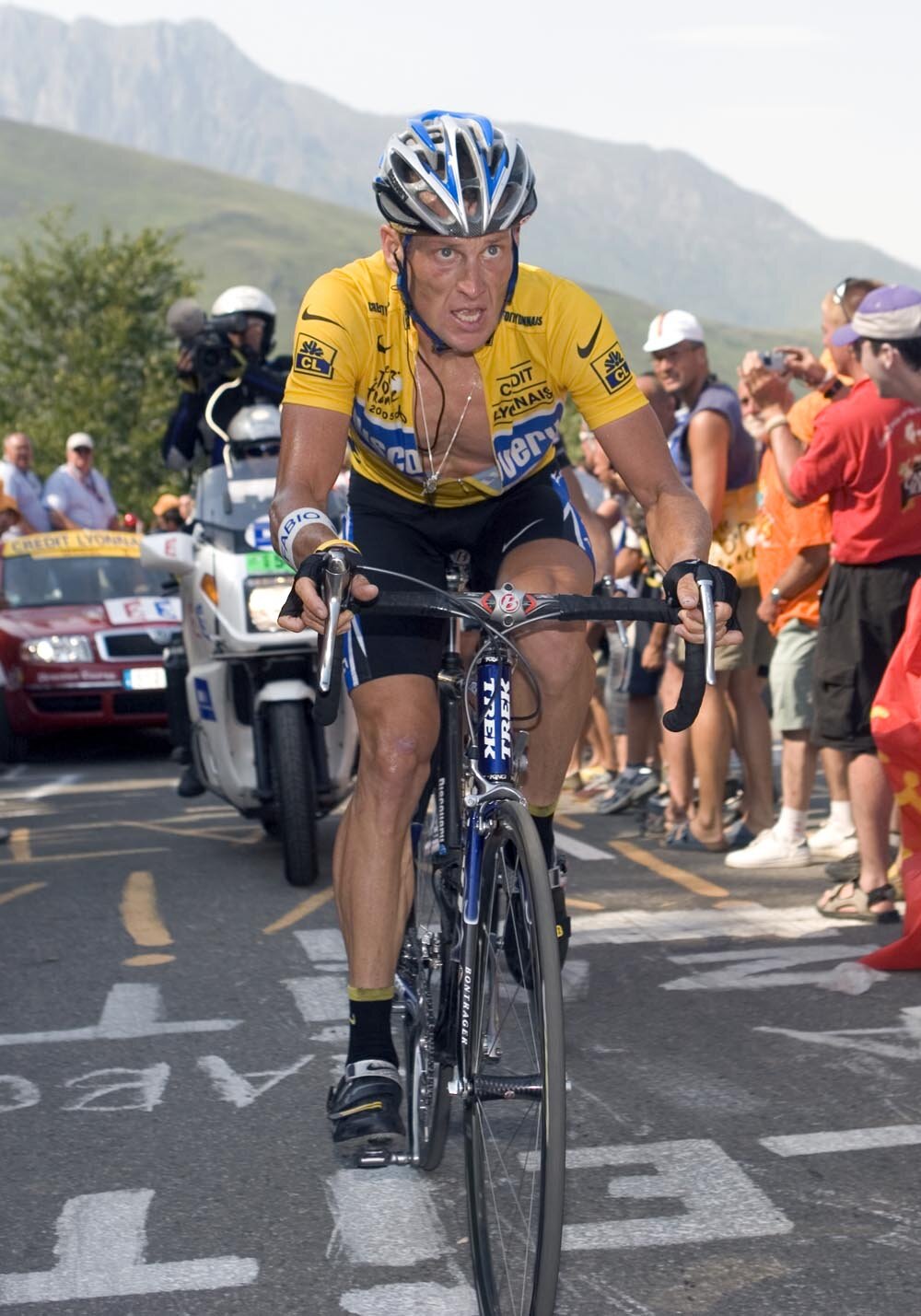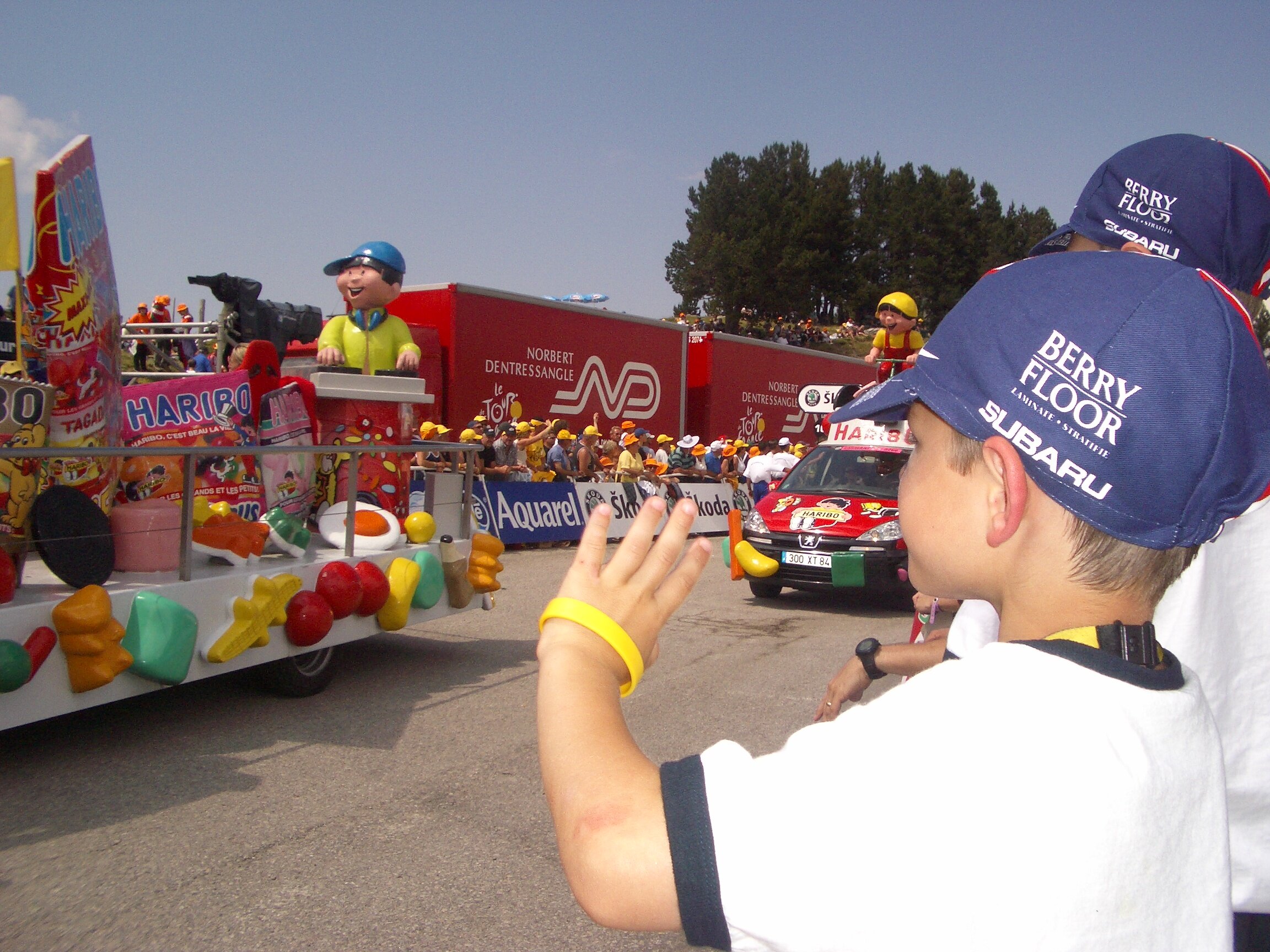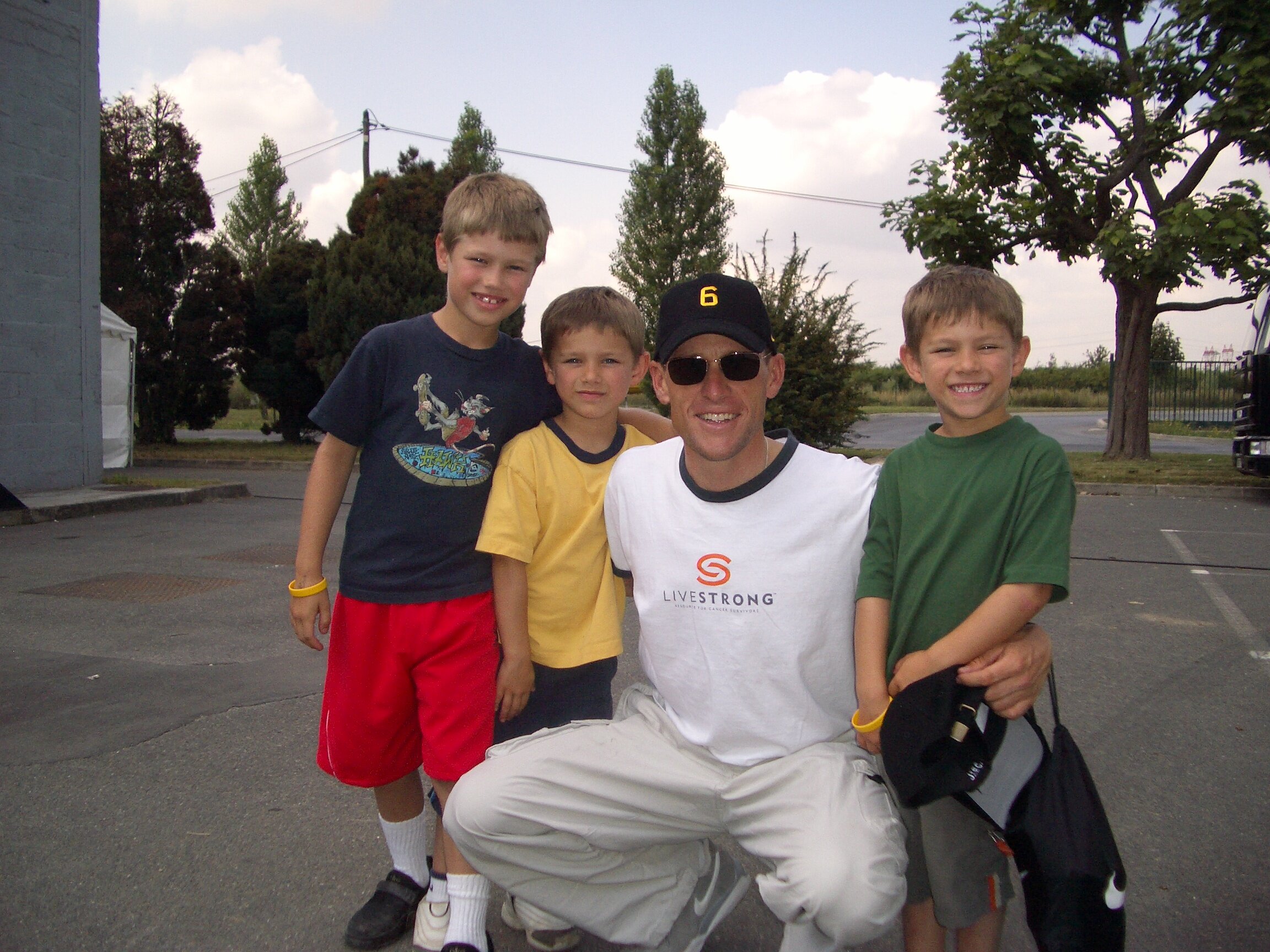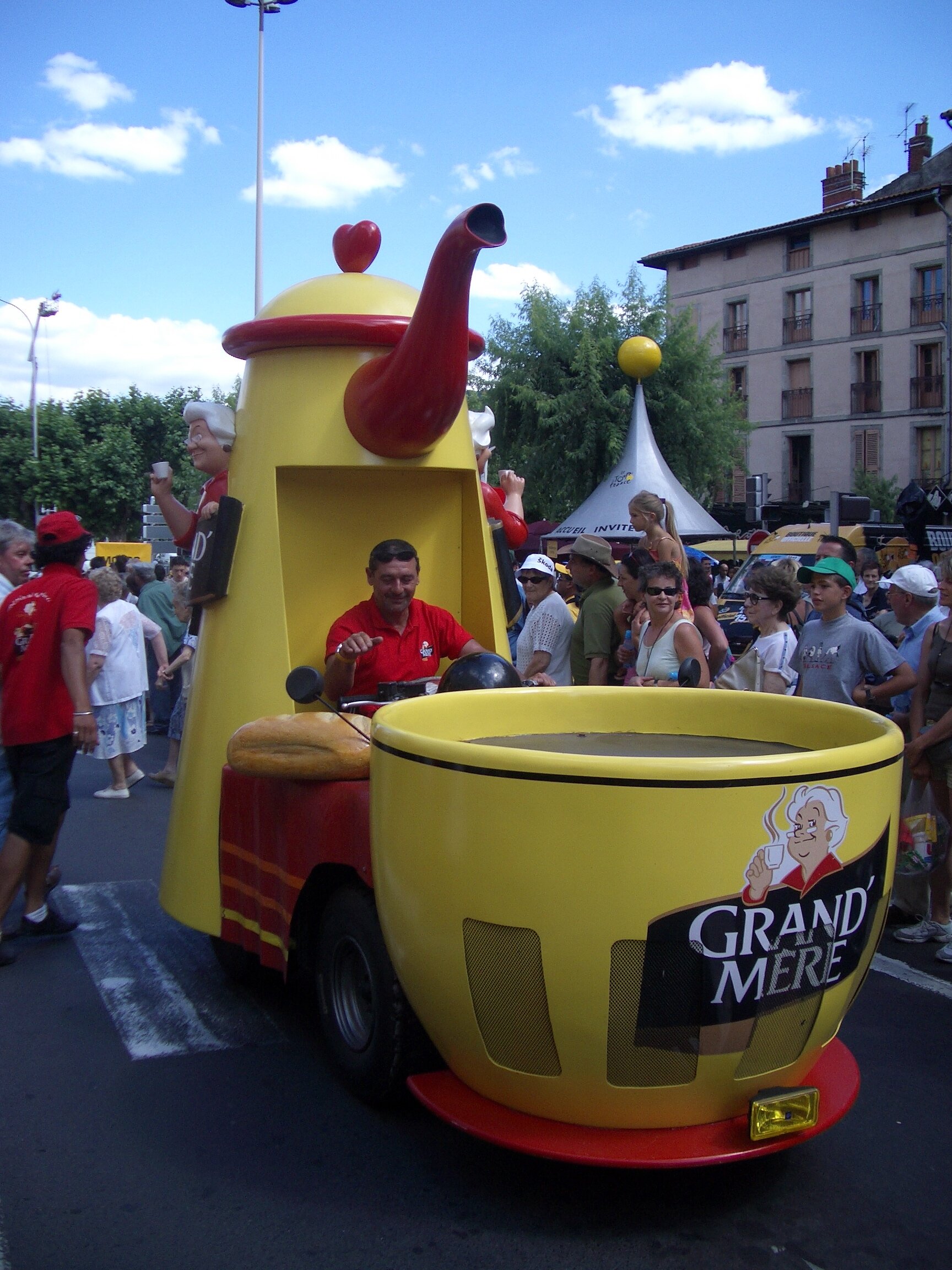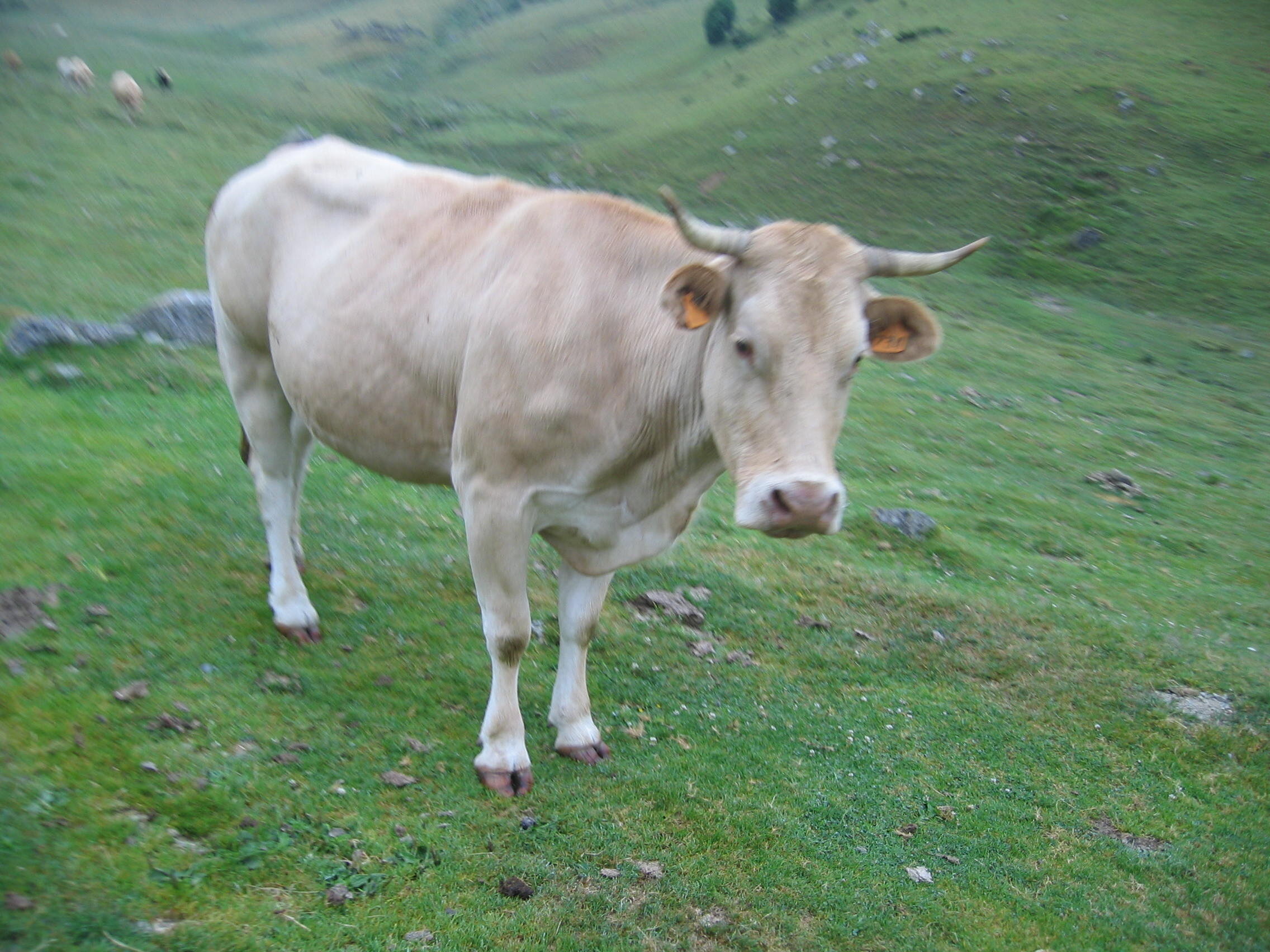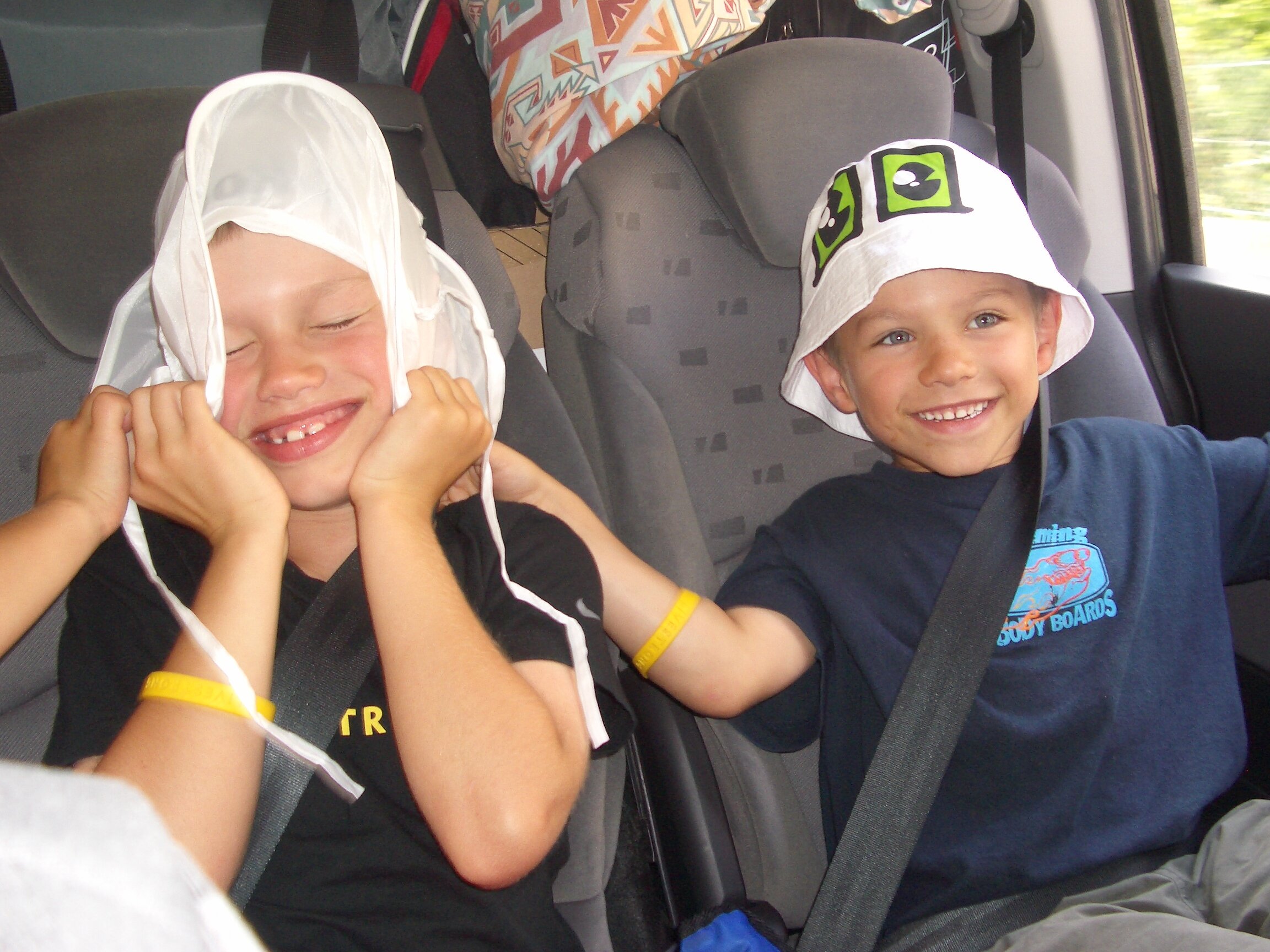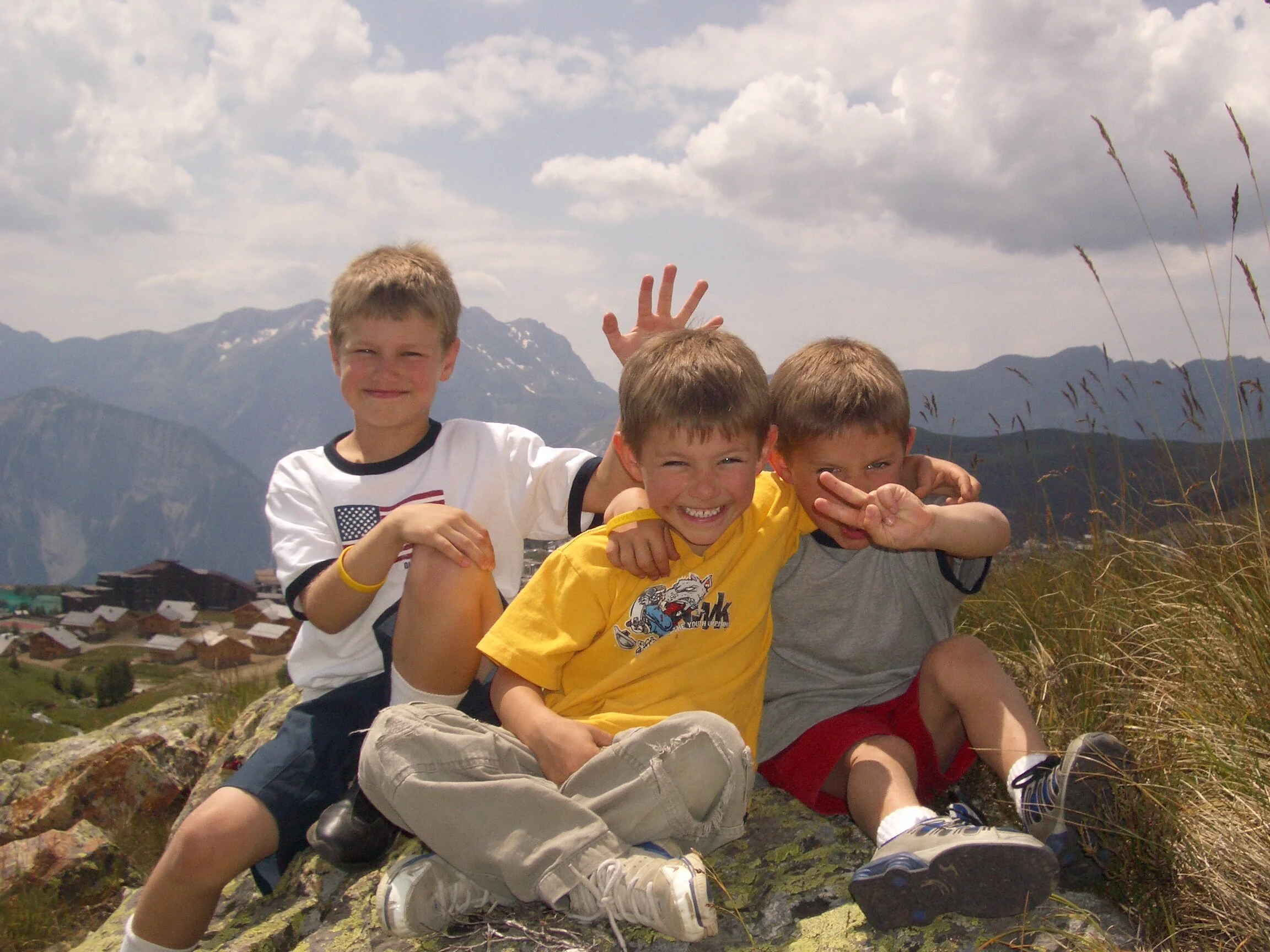My Book About Lance Armstrong
The book was published under my previous married name, Ashley MacEachern.
I wrote a children’s book about Lance Armstrong. While I’m proud to have been published by HarperCollins, I regret that it turned out Lance cheated. I was as disappointed as everyone else. I wrote it in 2006, and it was published in 2008. Armstrong admitted to doping in 2013.
In 2003, when my oldest son was seven and my twin boys were five, our family got to experience the Tour de France in-person. It was one of those most incredible live sporting events I’ve ever witnessed, and my kids were enthralled.
The book brings to life the thousands of fans from all over the world lining the roads, the crazy parades every day that preceded the riders, the entourage of team and VIP cars and motorcycles that followed the riders, the constant din of helicopters overhead, and so many other crazy things that can, and do, happen: like cows getting in the way, tides covering the road, riders crashing, and a million other action-packed, hair-raising, awe-inducing, flabbergasting things featured in my book.
Watching my three young sons’ eyes pop and jaws drop every day as they soaked it all in inspired me to write the book as much as Lance himself. To me, it was a story about never giving up and believing that it was possible to overcome any adversity that life threw at you. This crazy and colorful race was a perfect backdrop, and Lance was the perfect hero character - or so we all thought at the time. There had already been multiple books for adult audiences written about him, and I thought it would make a great story for kids.
I was thrilled when HarperCollins bought and published my book, and even more thrilled that it received positive reviews; kids and their parents loved it. The illustrator, Michelle Barbera, did a fantastic job bringing the story to life. There was a signed photo and a letter from Lance in every book, and a percentage of proceeds from sales was earmarked for his foundation. In his letter he wrote, “For me the Tour is about dreams coming true and the power of believing in yourself to do the impossible. What is your dream? What is your Tour de France?”
The last spread of my book asks, “What if something else goes wrong?” Well, something else went very wrong. He got caught and disappointed millions of fans, my sons and me included. While I stand by the book’s intended lessons of hard work and never giving up, I also learned that even heroes can fall far short of our expectations. All we can do is hold them accountable and do our best to be our own hero to ourselves. At the end of the day the most important thing is to be able to look in the mirror and respect the person looking back at us.

